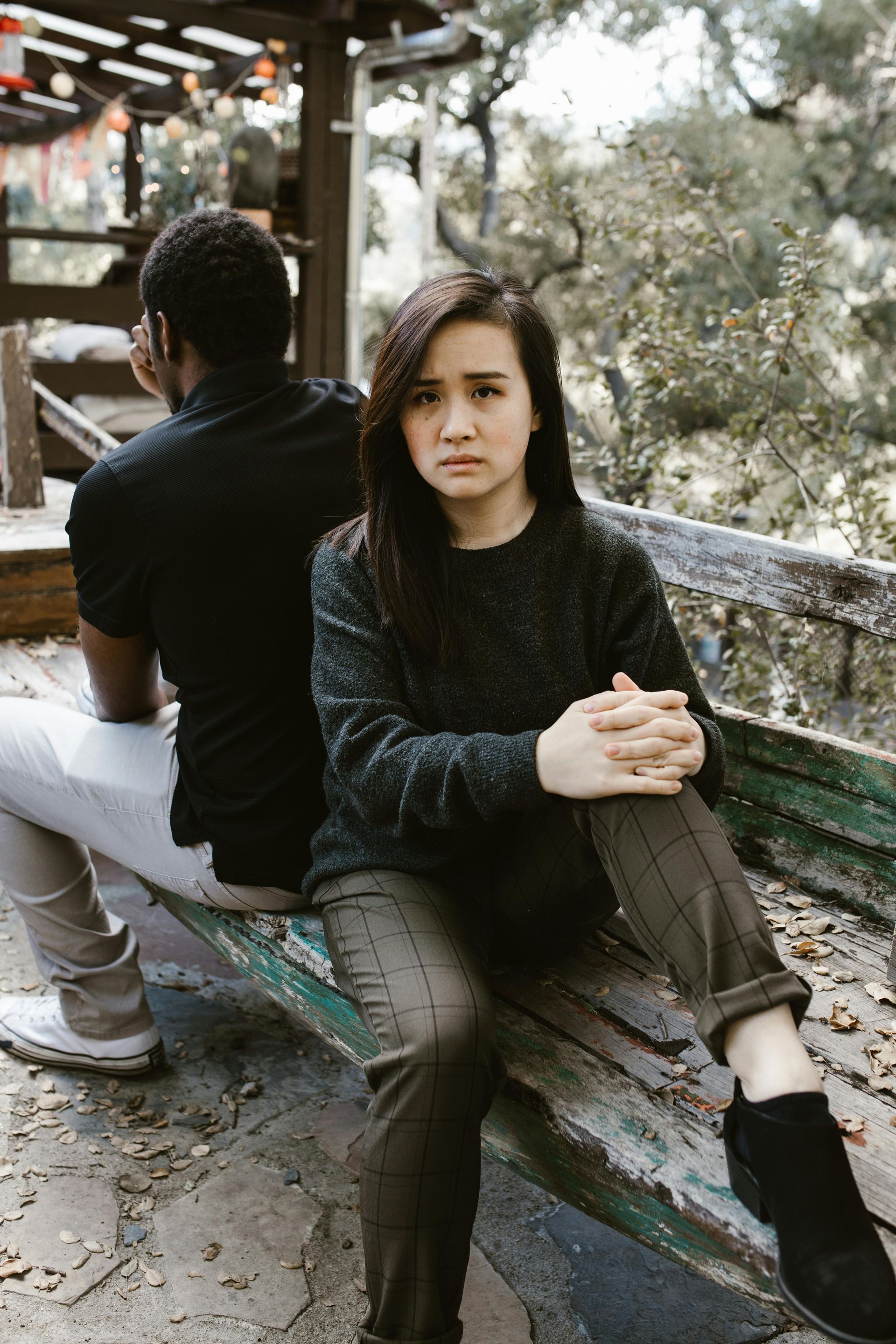The Psychological and Physical Effects of Hookup Culture
Share this Article:
A college student walks back to her dorm after a party, replaying the night in her head. The laughs, the dancing, the guy she just met–it was mutual, consensual, maybe even fun. But now that she's alone, a different feeling settles in. She wonders if he’ll text.
Hookup culture is often framed as bold, liberating, and uncomplicated. For some, that might be true. For others, it can bring unexpected emotional weight. There’s no one-size-fits-all outcome.
People respond differently to physical intimacy, especially when it lacks emotional connection. While some move on easily, others may wrestle with confusion, anxiety, or regret. These internal reactions don’t always surface right away, but they matter. Exploring the emotional and physical impact of hookup culture isn’t about shame, it’s about understanding your own experience and knowing you’re not the only one asking hard questions.
What is Hookup Culture?
Hookup culture is a term people use to describe casual sexual activity that happens outside of a committed relationship. It often shows up in movies, music, and social media as something that’s spontaneous and “no strings attached.” For some, it might look like kissing or making out with someone at a party. For others, it might mean having sex without planning to see the person again. The important thing to know is that there’s no single definition; it’s more about the idea that physical intimacy can happen without emotional connection or long-term commitment.
What’s tricky is that hookup culture can make you feel like you're supposed to be okay with all of that. Like caring too much makes you clingy, or that wanting more means you're too emotional. But feelings are real, and they don't turn off just because something was “casual.” It's okay to pause, reflect, and ask yourself what feels right for you.
What Are the Psychological Effects of Hookup Culture?
Everyone handles emotional connection differently, and that includes how we feel after being physically close to someone. Some people feel fine after a casual hookup, while others feel a deep sense of sadness, anxiety, or confusion they didn’t expect. None of those reactions mean something is wrong with you.
For some, hookup culture can lead to feeling used, unseen, or unsure of their worth, especially if there was hope it would lead to something more. Others may struggle with regret, shame, or a sense of disconnection, even if everything was consensual. Some people may even start to feel numb, like they're going through the motions without really being present.
Research shows a significant number of people experience negative emotions after casual sexual encounters. In one U.S. study, 50% of women and 35% of men said they regretted their most recent hookup. [1]
These emotional responses don’t happen to everyone, and they don’t always show up right away. But if you’ve felt this way, you're not weak or broken. Your heart and mind are trying to tell you something, and it’s worth listening to.
What is Hookup Culture?
Hookup culture is a term people use to describe casual sexual activity that happens outside of a committed relationship. It often shows up in movies, music, and social media as something that’s spontaneous and “no strings attached.” For some, it might look like kissing or making out with someone at a party. For others, it might mean having sex without planning to see the person again. The important thing to know is that there’s no single definition; it’s more about the idea that physical intimacy can happen without emotional connection or long-term commitment.
What’s tricky is that hookup culture can make you feel like you're supposed to be okay with all of that. Like caring too much makes you clingy, or that wanting more means you're too emotional. But feelings are real, and they don't turn off just because something was “casual.” It's okay to pause, reflect, and ask yourself what feels right for you.
What Are the Psychological Effects of Hookup Culture?
Everyone handles emotional connection differently, and that includes how we feel after being physically close to someone. Some people feel fine after a casual hookup, while others feel a deep sense of sadness, anxiety, or confusion they didn’t expect. None of those reactions mean something is wrong with you.
For some, hookup culture can lead to feeling used, unseen, or unsure of their worth, especially if there was hope it would lead to something more. Others may struggle with regret, shame, or a sense of disconnection, even if everything was consensual. Some people may even start to feel numb, like they're going through the motions without really being present.
Research shows a significant number of people experience negative emotions after casual sexual encounters. In one U.S. study, 50% of women and 35% of men said they regretted their most recent hookup. [1]
These emotional responses don’t happen to everyone, and they don’t always show up right away. But if you’ve felt this way, you're not weak or broken. Your heart and mind are trying to tell you something, and it’s worth listening to.
Are there Physical Effects of Hooking Up?
Physical closeness can be meaningful, but it also comes with real responsibilities. This includes natural hormone changes and possible health risks that are important to understand. It’s important to talk about these things openly, without fear or shame.
One of the most common physical effects is exposure to sexually transmitted infections (STIs). Even if someone looks healthy, they can still carry an infection without knowing it. Some STIs, like chlamydia and gonorrhea, can be present without symptoms and, if left untreated, can lead to long-term health issues, including fertility problems.
Another physical effect that sometimes gets overlooked is how our bodies naturally release hormones during intimacy. Chemicals like oxytocin (sometimes called the “bonding hormone”) and dopamine are released during sexual activity.
None of this is meant to scare you, it’s just part of being informed and caring for your whole self: body, mind, and heart. If you’re ever unsure, uncomfortable, or just want to talk things through in a private, supportive place, you’re not alone. We’re here for you.
Hooking Up: Beliefs vs. Reality
It’s easy to feel confused when everyone around you seems to be saying one thing, but your heart is telling you something else. Between social media, friend groups, and pop culture, there are a lot of unspoken “rules” about what hookup culture is supposed to feel like. But not everything people say (or assume) is actually true.
Let’s clear a few things up:
Myth: “Everyone is doing it.”
Fact: Many people talk about hookups, but that doesn’t mean they’re actually happening. Studies show fewer young adults are sexually active than most people think. [3] You’re not weird or behind for choosing to wait, or for wanting something more meaningful.
Myth: “If it felt wrong afterward, I must have done something bad.”
Fact: Feeling regret, sadness, and/or confusion are opportunities to reflect. Emotions are complex, and it’s okay to learn what feels right for you over time. It might be helpful to explore the spiritual dimension of sex.
Myth: “Hookups are totally risk-free if you’re safe.”
Fact: Using protection helps prevent STIs and pregnancy, but no method is 100% effective. And while it can protect your body, it doesn’t guard your heart. Emotional and relational risks can still show up, even when everything was “safe.”
Myth: “If I catch feelings, I messed up.”
Fact: Your body and heart are connected. Catching feelings doesn’t mean you're weak–it means you're wired for connection, and that’s completely normal.
Hookup culture often offers the allure of intimacy without the complications of commitment. But for many, especially Gen Z, who are reporting rising levels of loneliness, this arrangement can fall short. [3] Choosing physical closeness without emotional depth can create a kind of emotional catch-22: you crave connection, and the hookup provides a temporary fix, but it doesn’t fulfill the deeper longing for meaningful, committed intimacy. Letting go of that short-term closeness feels difficult, even though it may be standing in the way of the kind of relationship you truly want.
Long story short, if you’ve ever felt out of place in hookup culture or wondered why something that looked easy on the outside felt complicated inside, you’re not alone. Listening to your own experience matters, even if it doesn’t match what others are saying out loud.
For some, choosing to wait or practicing abstinence can be a way to honor your desire for real connection, to create space for emotional safety, and to build intimacy on a foundation of trust, not just chemistry. In a world that often celebrates immediacy, abstinence is a countercultural choice rooted in intention.
You’re Not Alone: Find Support at Pregnancy Care Clinic
Navigating hookup culture can feel confusing, isolating, or even overwhelming at times, especially when your experience doesn’t match what you thought it would be. Maybe you felt fine in the moment, but something’s lingering now. Maybe you didn’t expect to feel anything at all, and now you’re carrying questions you’re not sure how to ask. That doesn’t make you weak. It doesn’t mean you’re broken. It just means you’re human.
Your emotions matter. Your health matters. You matter.
At Pregnancy Care Clinic, we’re here to support your whole self–body, mind, and heart. Whether you need a confidential pregnancy test, STI testing, someone to talk to, or just a quiet space to breathe and think, you’ll find compassionate care here. No pressure. No judgment. Just people who truly listen and walk alongside you.
You don’t have to sort through everything on your own.
Make an appointment today, or take a look at
our services to see how we can support you.
Sources
- McKeen, B. E., Anderson, R. C., & Mitchell, D. A. (2022). Was it Good for You? Gender
Differences in Motives and Emotional Outcomes Following Casual Sex. Sexuality & culture, 26(4), 1339–1359. https://doi.org/10.1007/s12119-022-09946-w
2. Willingham, E. (2024, February 20). People have been having less sex--whether they’re
teenagers or 40-Somethings. Scientific American. https://www.scientificamerican.com/article/people-have-been-having-less-sex-whether-theyre-teenagers-or-40-somethings/
3. Coombs, B. (2020, January 23). Loneliness is on the rise and younger workers and
social media users feel it most, Cigna survey finds. CNBC. https://www.cnbc.com/2020/01/23/loneliness-is-rising-younger-workers-and-social-media-users-feel-it-most.html




